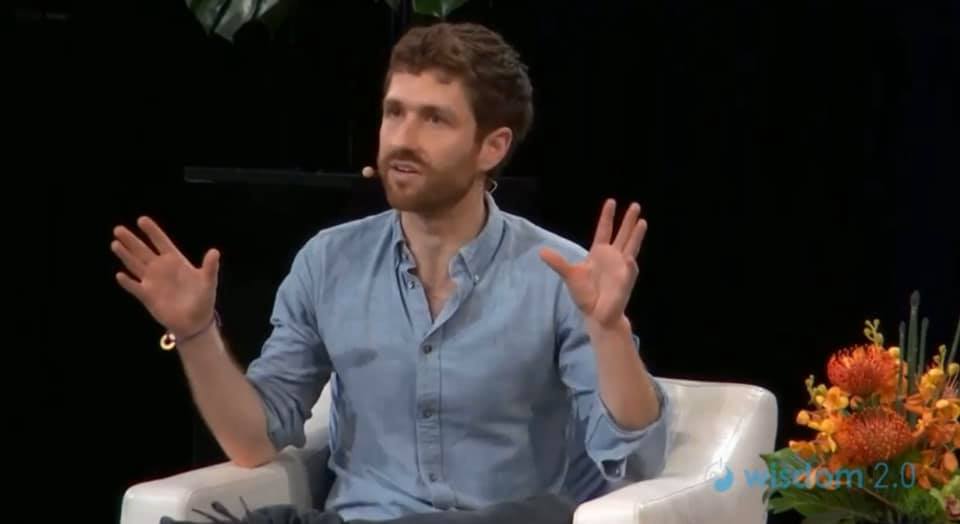wisdom Blogブログ

(English version : click here)
日々、20億人もの人々のマインド(思考や行動)を倫理的に誘導するために、我々はどうすべきか?
「シリコンバレーで最も良心に近い存在」(雑誌アトランティック)という異名を持つトリスタン・ハリス氏は、グーグル社でDesign Ethicist(倫理的デザイナー)として、テクノロジーがスクリーンを通して、何十億人という人々の思考や行動を「倫理的に」導くためのフレームワーク作りに3年間従事しました。
ハリス氏は現在、センター・フォー・ヒューメイン・テクノロジー(Center for Humane Technology)の共同創設者であり、同センターは「人類の格下げ(Human Downgrading)」を覆し、テクノロジーに人間性を反映させることをミッションに掲げています。
雑誌ローリング・ストーンは「世界を形造る25人」の内の一人として、また雑誌フォーチュンは「影響力のある40歳以下40人(2018年版)」の一人として、テクノロジー改革を主導するハリス氏を挙げました。2016年、ハリス氏はグーグル社を去り、非営利団体「有意義な時間(Time Well Spent)」を立ち上げ、注意の経済を改革する活動を始めました。
「有意義な時間」は、人々のアテンションを獲得するためのテック業界による競争を非難し、オンラインのデザイン面での解決法を提案しました。2018年1月、マーク・ザッカーバーグ氏は有意義な時間の実現をフェイスブックのデザインの目標に掲げ、同年5月、アップル社とグーグル社はそれぞれ「デジタル・ウェルビーイング」のイニシアチブを打ち出しました。
有意義な時間を作り出す機能は現在iOSやアンドロイド製品でも採用されています。
ハリス氏は人間の思考や行動をハイジャックする影響力について10年以上研究しました。
手品に夢中だった子供時代や、スタンフォード大学の説得技術研究所在籍時代における経験を通し、倫理的で人間性を反映したテクノロジーの必要性を意識するようになったのです。
意識の経済に関するハリス氏の活動は、2013年にグーグル社で彼が作成したスライド資料集が急速に拡散したことがきっかけで始まりました。
同資料集は、人々のアテンションを獲得しようとするテック業界の「兵器」開発競争と、企業が社会構造を組み替える方法における、各企業の道徳責任について警鐘を鳴らすものでした。
出典:
トリスタン・ハリス氏ホームページより抜粋。
https://www.tristanharris.com/
Speaker Profile: Tristan Harris
How do you ethically steer the thoughts and actions of two billion people’s minds every day?
Called the “closest thing Silicon Valley has to a conscience,” by The Atlantic magazine, Tristan Harris spent three years as a Google Design Ethicist developing a framework for how technology should “ethically” steer the thoughts and actions of billions of people from screens. He is now co-founder of the Center for Humane Technology, whose mission is to reverse ‘human downgrading’ and re-align technology with humanity.
Rolling Stone magazine named Tristan one of “25 people shaping the World”, and was named in Fortune’s 40 under 40 of 2018 for his work on reforming technology.
In 2016, Tristan left Google to work on reforming the attention economy with the non-profit initiative, Time Well Spent which called out the industry’s “race to the bottom of the brain stem” to capture attention and proposed design solutions.
In January 2018, Mark Zuckerberg embraced “time well spent” as a design goal for Facebook, and in May 2018, Apple and Google each launched “Digital Well-being” initiatives and “time well spent” features now shipping on iOS and Android phones.
Tristan has spent more than a decade studying the influences that hijack human thinking and action.
From his childhood as a magician to his work in the Stanford Persuasive Technology Lab where he studied persuasive technology, Tristan became concerned about the need for ethical and humane technology.
His work on attention economy started in 2013, when he created a slide deck within Google that went viral, warning about the technology industry’s arms race to capture human attention and the moral responsibility companies have for the ways they structure society.
(Excerpts from Tristan Harris’ Homepage, https://www.tristanharris.com/)
- HOME>
- wisdom Blog>
- トリスタン・ハリス【Wisdom2.0登壇者紹介】


















